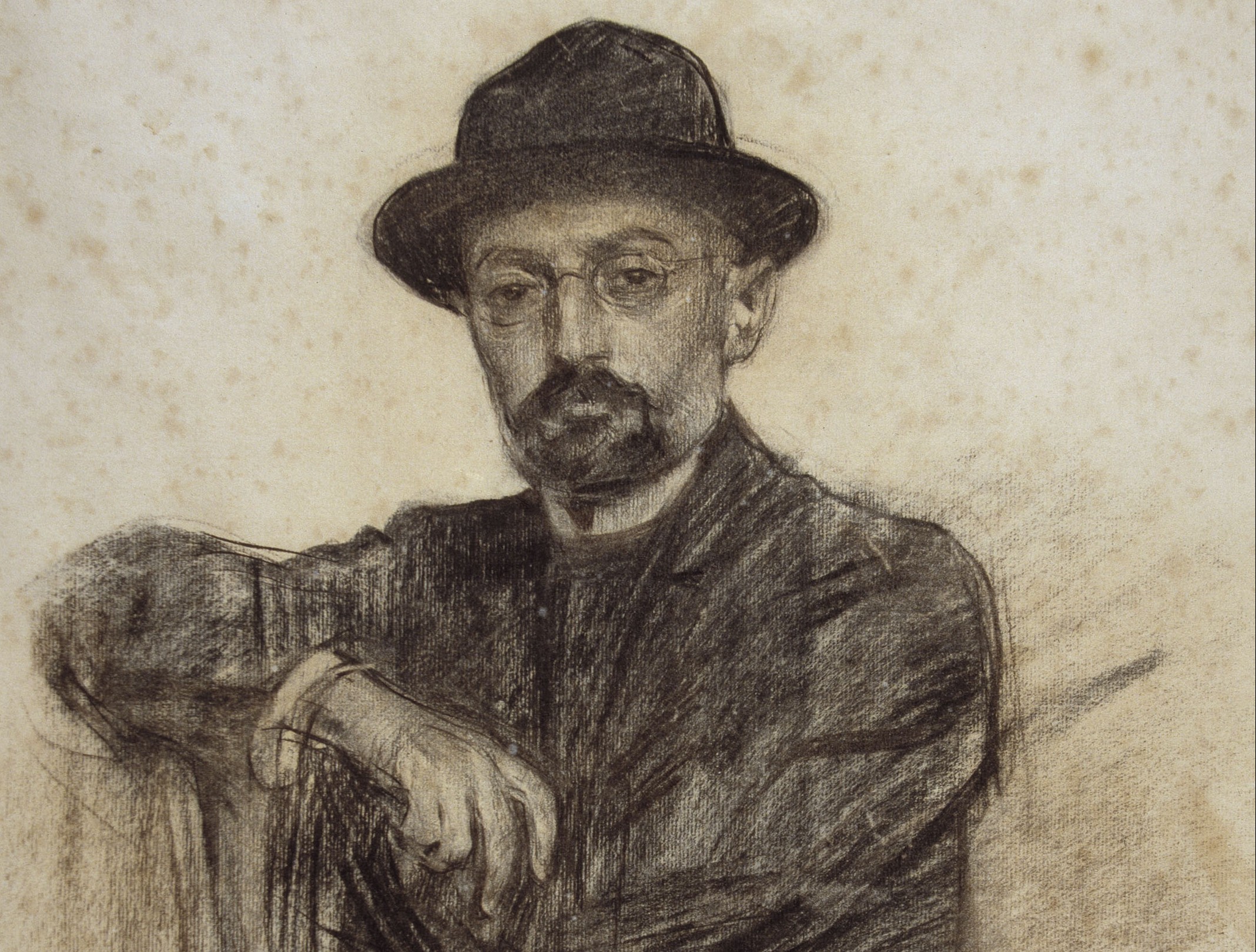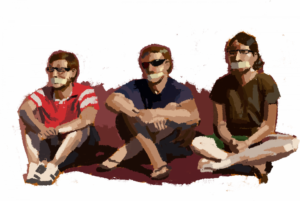“True religion? All the religions are true insofar as they make those people who profess them live spiritually, insofar as they console them for having been born to die, and for each people the truest religion is theirs, the one that has made them.” –Saint Emmanuel the Good, Martyr, Miguel de Unamuno
Saint Emmanuel the Good, Martyr is the spiritual magnum opus of Miguel de Unamuno, a Spaniard who explored almost every style of writing at the beginning of the 20th century. It is a breathtakingly profound and heart-wrenching account of the author’s own struggles with Catholic faith, told through the character of Saint Emmanuel.
Emmanuel is the priest for the small village of Valverde de Lucerna, wholeheartedly dedicated to the spiritual, physical, and emotional well being of the people. He hides his secret of persistent existential doubts behind a paradoxically genuine façade of faith and direction. His agonizing struggles represent those of people raised in a religion to which they no longer prescribe, and his martyrdom comes down to his unbelievable commitment to the good and a thorough understanding of the cliché “ignorance is bliss.”
The novella is a beautiful story of faith and doubt. Emmanuel’s hidden despair contains quite sinister undertones of the desolation and solitude of a world without religion, leaving his religious readers with a somewhat nauseating discomfort in the face of doubt and his irreligious readers with the pervasive loneliness of the material world.
I don’t think it’s too presumptuous to say that science is propelling new generations in an increasingly atheist direction. It is undeniably a product of parents wanting to give their children the right to choose their own spiritual paths and attempting to avoid forcing kids into a religion the way society has functioned for a couple millennia. The problem with this ideal is that most children clearly do not understand the value of religion and faith at a young age, and will therefore have very little natural interest in exploring and choosing a religion. The result is that an overwhelming majority of these kids will grow up to be atheists.
One of the major problems linked to atheism relates to mental and spiritual health. We are undoubtedly a generation of lost, tired souls. There are countless articles about millennials having their midlife crises in their 20s, and a surprising number of young adults have a seemingly inappropriate world-weariness that should belong to the elderly. I believe that this is directly related to the atheism of our generation. As hard as atheists may argue for their contentment without religion, the truth is that they have nothing besides that which the human world can provide. Their world, in all its riches and beauty, is still undeniably one-dimensional.
What a spiritual upbringing provides is the ability to comprehend and meditate upon abstract, universal principles. What spirituality entails, regardless of the name, the god(s), and the specific morality, is the necessity to see human life from some outside perspective, and the ability to relativize human existence to something greater than ourselves. Those without faith, however, are forced to relativize the universe and all that it contains to humans, which is an extremely fragile state of mind. If they ever venture away from human relativity, they quickly find that everything loses meaning. Thus we arrive at San Manuel’s existential crisis.
It ultimately becomes the responsibility of caregivers to introduce children to spirituality. The church, faith, and religion do not necessarily matter; it is more a matter of opening the door to spirituality so that the individual can decide whether or not to walk through it later on in life. This issue carries a certain urgency about it, as the hinges to that door seem to ossify over time, until it becomes completely impossible to open, leaving the individual to wander the material world, utterly alone and insignificant in the silence of the godless cosmos.







So, you’re saying that only by believing in magical monsters can one have a proper understanding of, and appreciation for, life, the universe, and everything? Really? Are you sure you don’t want to reconsider your position?
Hi Randy,
As far as I can see, the article makes no mention of magical monsters nor does it attempt to establish the existence of a god (Christian or otherwise). It simply points out that modern society seems to be losing a spiritual aspect that has been present in all civilizations throughout history, and posits that this might be having a detrimental effect on our generation.
While it’s wonderful that you wish to take part in a debate, in future it would help to engage with the points made rather than ones you think you have read.
Randy’s just being an idiot. You can see it in how he phrases his comment by accusing the author of something the author doesn’t do. Randy isn’t looking to engage in a discussion, he just wants to throw stones.
I would argue the opposite – religiosity is a form of denying the nature of the universe. It seeks to place people as somehow important in the greater scheme of things – which is not supported by actual evidence. It makes people make important choices about the way they treat each other and the world around them based upon the premise that ‘God’ will somehow take control and guide them and that ‘all the answers’ are in a book written thousands of years ago.
It is no coincidence that the states with the highest rates of religiosity are also those with citizens most likely to deny science on things like climate change, have the lowest rates of higher education and the lowest standards of living. Those same religious states also have the highest rates of teen pregnancy. A map showing suicide rates has the highest rates in those same religious, conservative states, with the lowest rates in the East and California.
States with higher education and more atheists also have higher life expectancy and feelings of hope about the future. The more religious states have citizens who are more likely to distrust the government and the future, who are more likely, as President Obama said, to ‘cling to their Bible and to their guns’.
Even your choice of words, ‘spiritual health’, ‘lost, tired souls’ is a display of your assumption that such a thing as a soul or spirit even exists. Show me the evidence and we’ll discuss it. In the meantime I will continue to live my life, content with existence, loving my family, overcoming some challenges and failing at others – all without the probably false belief in gods, spirits or demons.
“It is no coincidence that the states with the highest rates of religiosity are also those with citizens most likely to deny science on things like climate change, have the lowest rates of higher education and the lowest standards of living. Those same religious states also have the highest rates of teen pregnancy. A map showing suicide rates has the highest rates in those same religious, conservative states, with the lowest rates in the East and California.”
I bet if they tracked mental health rates from 50 or 100 years ago up to day, and compared it with rates tracking how religious college students during the same time period, we would find an increase in mental problems and decline in religiosity.
The quote at the beginning of the article is indeed the strongest argument for faith that can be made. I just don’t think it’s a strong enough argument, since it can all too easily lead people to waste their life on a fantasy. It is an effort to give false comfort to those who are frightened at the prospect of death. But for the atheist, death is not wholly fearful, since it gives a great incentive to live life well.
As for the “pervasive loneliness of the material world”, as an atheist, I don’t find it lonely – not at all. In fact, when I stopped believing in God, it was like a weight lifted from me, and like a fog was lifted, allowing me to see clearly for the first time. And if God does not exist (and he certainly does not), then if people of faith are not lonely now, then they will not be lonely when they realize God is not real. While the loss of the delusion that people have a friend in God may result in a sense of loneliness, that sense of loneliness is also a delusion. True loneliness can only be fixed by making connections with real people.
Louisa Christen’s assertion that materialism is one dimensional is false. A false spiritual dimension does not add value – it’s a delusion. Any perceived added value is also a delusion. The fact is, what she sees as added value also exists in the material world. Ascribing it to spirituality is merely falsely ascribing to the spiritual world something that already exists in the material world.
Louisa’s conclusion is that it’s important to bring children up spiritually, so that they can also enjoy her delusion. I think it’s far healthier to bring children up in the real world, so they can understand that it already contains all the beauty and dimension, without the need of a myth. Her assertion that this needs to be done fast is quite telling, I think: children are very impressionable, and until teenagehood they lack critical thinking skills. This is why they can be led to believe wholeheartedly in the Tooth Fairy, the Easter Bunny and Santa. While it’s okay to let children have these delusions while they’re young, it is not a good idea to allow them to continue believing myths into adulthood. This is what people of faith do, because they were brainwashed as kids too. And while in most cases, it’s harmless, we should never forget that it can lead to horrible abuses. Accurate perceptions of the real world can lead people to abusive behavior too, but when that happens, at least it’s due to an honest mistake, and not due to a delusional belief in a fake god.
Delusions are never healthy.